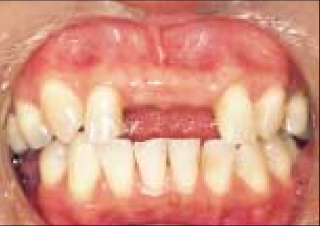Edentulism is simply defined as toothlessness. It is a condition of one being toothless to a certain degree. It can either be partial or complete.
Partial edentulism – this occurs when someone has loss of one or more of his/her tooth but not all of the teeth.
Complete/total edentulism – this occurs when someone has loss of all teeth in the mouth.
CAUSES OF EDENTULISM
- Dental cavity: when a tooth that has hole is left untreated for a long time, it may degenerate to the stage that the only viable option would be to have it removed.
- Gum diseases/peridontal diseases affects the alveoli bones, peridontal ligaments and gum which together form the principal support of the teeth resulting in loosening and falling out of the tooth.
- Trauma
Other risk factors include:
- Smoking: leads to gum damages, therefore it is best for nicotine addicts to quit;
- Age: studies shows that more than 70% of people over the age of 65 have had one or more tooth removed due to cavities or gum diseases;
- Genetics: if your blood relatives have removed their tooth, you may also have an elevated risk as well;
- Stress;
- Certain medical conditions such as diabetes, hypertension, rheumatoid arthritis might make one susceptible to tooth loss because they contribute to risk of developing gum diseases;
- Certain medications may cause side effects like dry mouth that can further develop gum diseases.
SIGNS AND SYMPTOMS OF EDENTULISM
- Loss of facial aesthetics.
- Loss of fullness of the cheek, facial vertical height.
- Alterations within the lips and tongue making some pronunciations difficult.
- Gradual degeneration of the alveoli bone within the mouth which makes the tongue broaden out and creates difficulty for dentist when creating a denture.
- Masticatory difficulty.
BEST WAYS WE CAN PREVENT EDENTULISM
- Brushing your teeth twice daily (morning and at night)
- Flossing after every meal
- Visit your dentist twice yearly
- Usage of dentist – recommended mouthwash
- Prompt treatment of any existing tooth cavity.
CONCLUSION
Edentulism/tooth loss has a vast impact on an individual’s general and psychological health. Thus, early presentation and regular dental visits will help to prevent unnecessary loss of tooth and enhance proper oral management.
